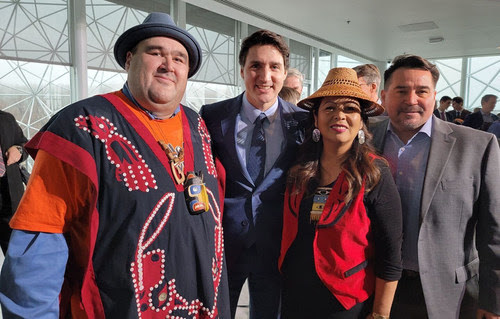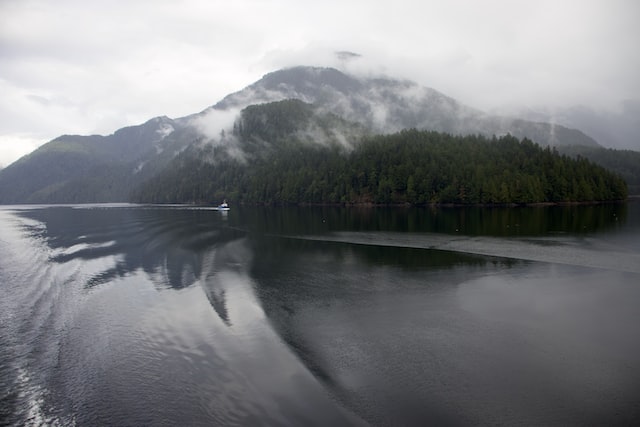Montréal – The federal government has announced its plan to invest $800 million in four Indigenous-led conservation initiatives across Canada, including a commitment to join our Nations to develop a conservation finance model for the Great Bear Sea. The Project Finance for Permanence (PFP) is a unique funding model designed to provide sustainable and accessible funds for community-led conservation projects. Through this initiative, our Nations will bring together government and philanthropic partners, along with other investors, to secure durable financing for effective marine stewardship and collaborative governance.
Led by 17 Nations of the North Pacific Coast, the Great Bear Sea initiative will build on the success of the first PFP model developed in the Great Bear Rainforest in 2007. This innovative partnership among our Nations, the governments of Canada and BC, and philanthropic funders has protected millions of hectares temperate rainforest, financed Indigenous stewardship, management, and protection of traditional territories, created over 1200 new jobs, and facilitated the transition to a more diverse and sustainable regional economy. Our innovative finance model has since been adapted to support large-scale conservation initiatives all around the world.
“Our Nations have governed and managed our territories for more than 14,000 years. When we exercise our stewardship authorities and responsibilities, everyone benefits,” said Coastal First Nations president Chief Marilyn Slett. “We believe that this model of Indigenous-led conservation will continue to inspire the world. In an environment increasingly impacted by climate change and the loss of biodiversity, this is the best way to deliver the results we all so desperately need.”
“Building on this proven model, our Nations are working toward a vision that includes restoring and protecting healthy and abundant marine ecosystems, restoring Indigenous governance and stewardship authorities, creating thousands of new jobs, and accelerating the transition to more sustainable and more equitable local economies,” added Slett. “We know that self-determined finance and collaboration are key to achieving long-term outcomes. The federal government’s commitment will help bring more partners to the table as we work to build and design the Great Bear Sea PFP.”
“Our success in the Great Bear Rainforest has proven that Indigenous-led conservation works for nature and for people, and the extension of this PFP model in the Great Bear Sea will bring our vision full circle by linking management and stewardship across land and sea. This PFP is about more than funding, it’s about a new model of conservation and sustainability founded on principles of stewardship and collaborative governance,” said Dallas Smith, President of Nanwakolas Council. “We’d like to thank the Prime Minister for his commitment to bring Canada to the table alongside our philanthropic partners, so we can deliver this new PFP by 2025.”
“We also want to acknowledge Canada’s support for Indigenous-led conservation, including our work as well as that of the three other initiatives across Canada,” added Smith. “When you combine the strength and determination of these Indigenous leaders, the scale of the territories we protect and steward, and the ambitious investment from Canada and private funder partners — we are building something truly remarkable. Together we can galvanize a worldwide movement that puts Indigenous-led conservation at the heart of global conservation efforts.”

The Great Bear Sea initiative is one of four PFPs across Canada to which Canada committed its support. The others are the Omushkego Conservation Project in northern Ontario; the Qikiqtani Region of Nunavut; and Northwest Territories. Each PFP initiative is very different, reflecting the distinct rights and responsibilities of their Indigenous leadership as well as the different ecosystems, communities, and economies in each area. However, all four PFPs share principles of Indigenous-led conservation including a recognition that the health of our lands and waters is inseparable from the health of our people.










